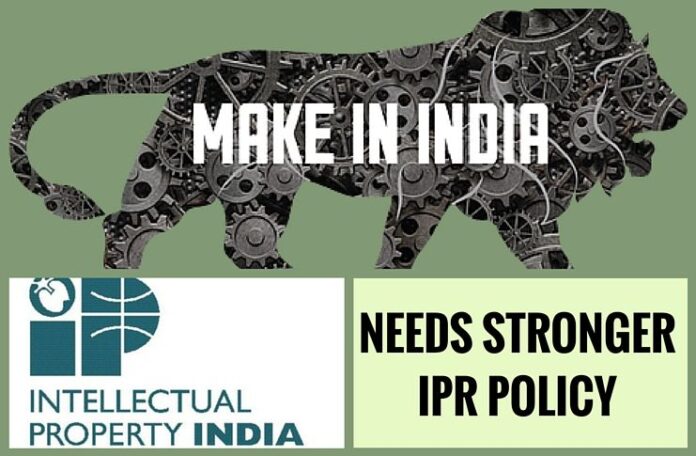
[dropcap color=”#008040″ boxed=”yes” boxed_radius=”8px” class=”” id=””]A[/dropcap]lthough Prime Minister Narendra Modi has been harping on India’s support for intellectual property rights (IPR), the country’s ranking on the global platform has remained rather stagnant.
Experts feel that things would only fall in place once the country finalizes a strong IPR policy.
The national IPR policy, drafted by the Department of Industrial Policy & Promotion, is yet to get an approval from the union cabinet, although it is likely to get this soon.
[dropcap color=”#008040″ boxed=”yes” boxed_radius=”8px” class=”” id=””]A[/dropcap]ccording to Ajay Batra, CEO of New Delhi-based World Intellectual Property Rights Bank, the policy is in the stage of finalisation. “The very fact that the IPR think tank and government officials interacted with industry, legal system, public at large and even foreign representatives for over a year is an indicator that India means business,” Batra told IANS.
According to the “International Property Rights Index” (IPRI) published by the Americans for Tax Reform Foundation’s Property Rights Alliance, India was ranked 62nd globally this year. India’s score in 2015 in the IPRI index was 5.2 — lower than its score of 5.5 in 2014.
The report analyzed the IPRI of 129 countries, which is a score calculated by using the legal and political environment as well as property rights of each country.
Batra said a “fragmented yet very well-defined effort spanning industry, government, legal environment and education is underway in India in improving IPR capabilities and process maturity. The IPR Policy will serve as a tipping point where all these efforts will become visible to the world”.
[dropcap color=”#008040″ boxed=”yes” boxed_radius=”8px” class=”” id=””]B[/dropcap]ut Avirup Bose, assistant professor at Jindal Global Law School, thinks protection of IPR needs more focus than an effective IPR policy. “IPR stands at the crossroads of a nation’s capacity for entrepreneurial innovation, competitive prowess and an ability to attract investment – each of which has a different regulatory structure in India. Therefore, progress made on the legislative front should not be curtailed by India’s economic regulators or courts,” Bose said in response to questions by IANS on IPR.
India has often been at the receiving end of criticism for not bringing in strong laws to protect intellectual property. This had allowed several domestic companies to use internationally recognized patents by tweaking the processes. However, the present government has assured global investors that India would bring in a robust policy of intellectual protection.
“India needs to demonstrate a commitment that IPR remains central in the economic policy making, its economic regulators and its courts. If India fails to incubate innovative ideas at home or creates a reputation of failing to protect ideas of others, our ambitious manufacturing policy would be still-born,” Bose said adding that for Modi’s ‘Make in India’ campaign to work, an ‘IPR First’ campaign would be needed.
According to T.C. James, president, National Intellectual Property Organization, designs had always been the weak sector of IPR in India.
“Creation of a separate Department of Intellectual Property that would handle all IP legislations now spread over many departments is need,” James told IANS.
He also suggested that strengthening of IP offices with adequate number of human resources, technology up-gradation and further simplification of rules and procedures would help the country. “It should aim at becoming the model IP office of the world with no pendency,” James said.
Notes:
1. IANS
- Pentagon cancels aid to Pakistan over record on militants - September 2, 2018
- The curious case of Tamil Nadu’s opposition to NEET - September 4, 2017
- If 2.6 Billion People Go To War: India vs. China - July 22, 2017







